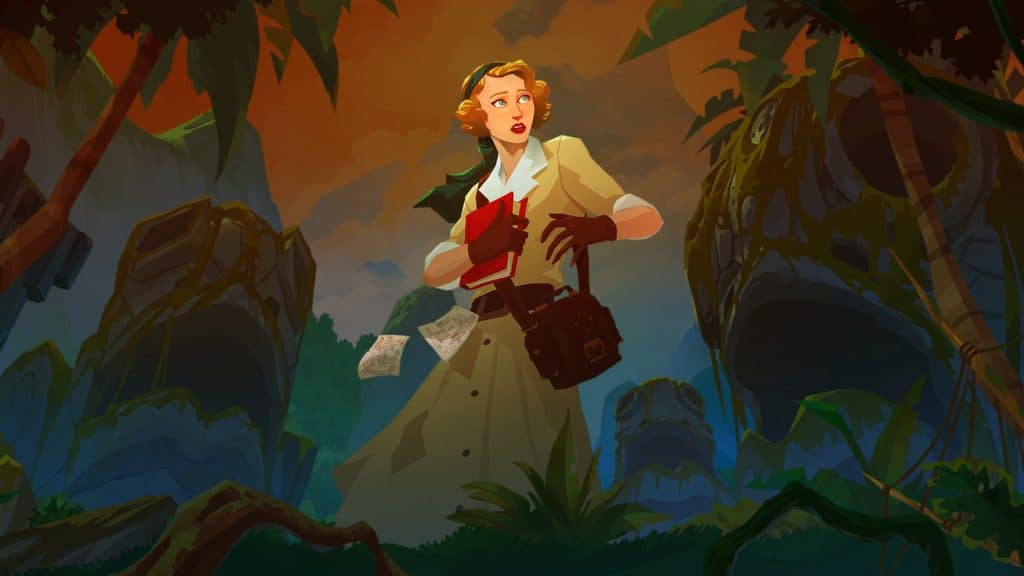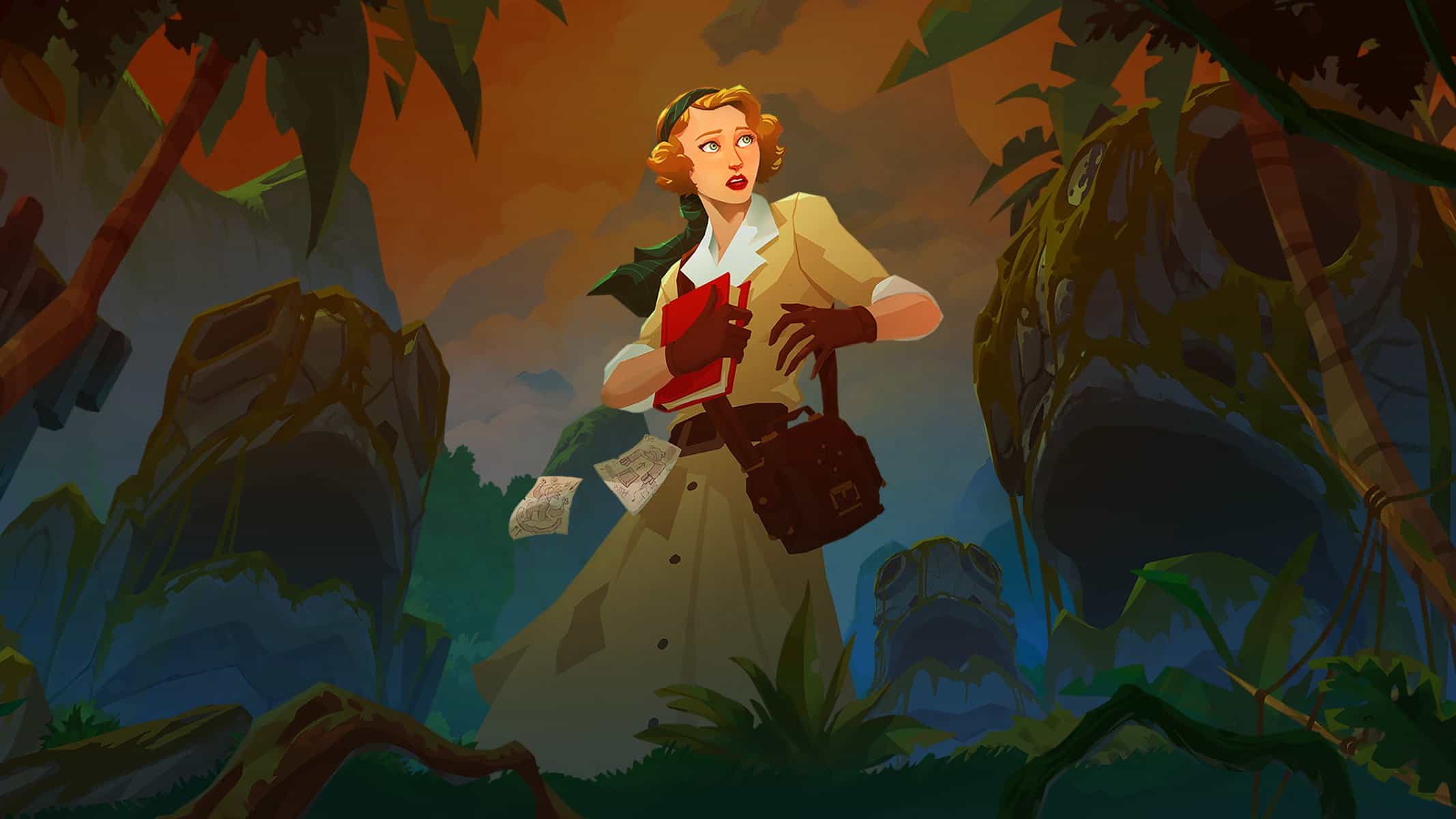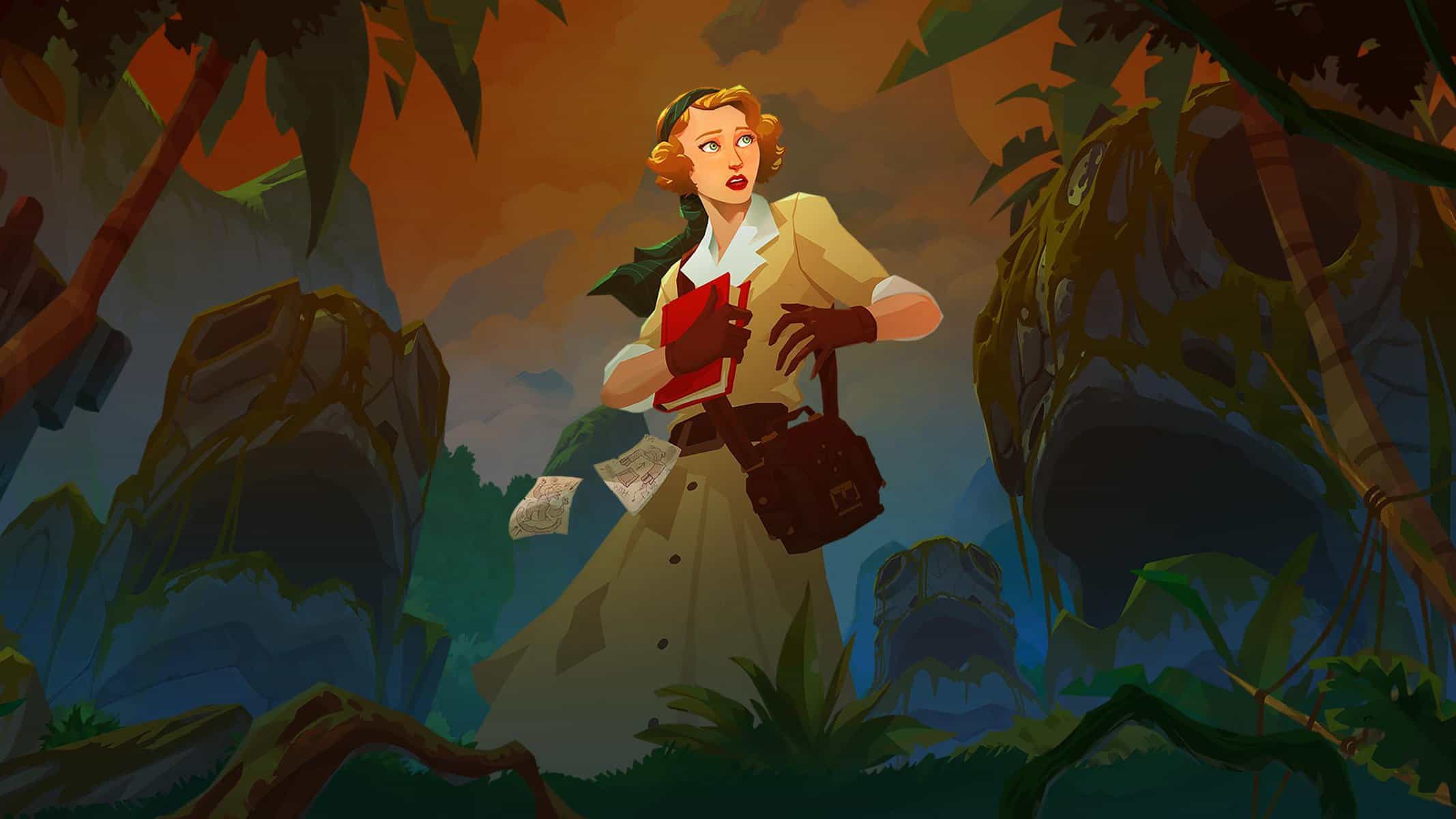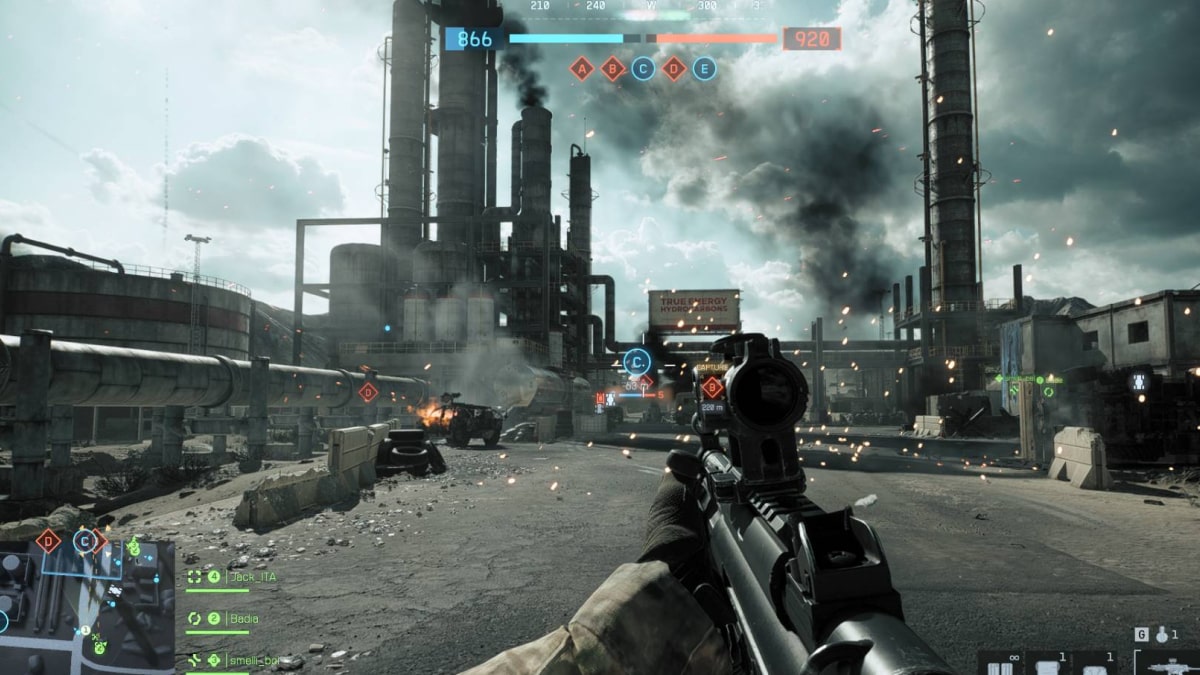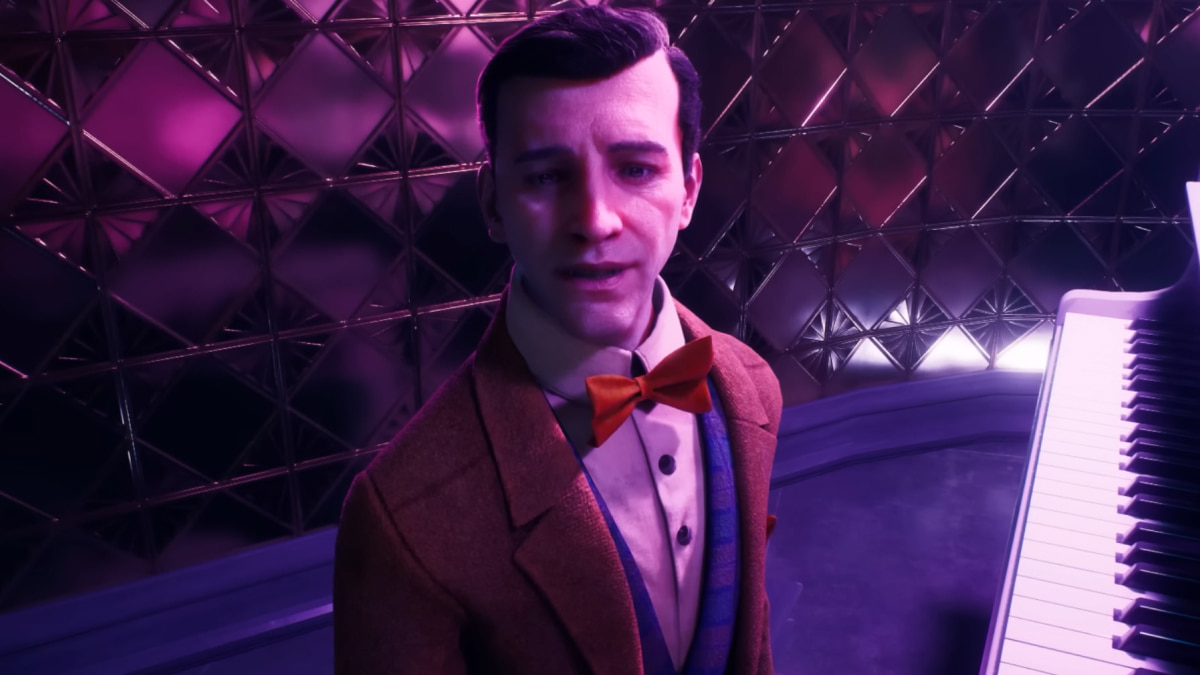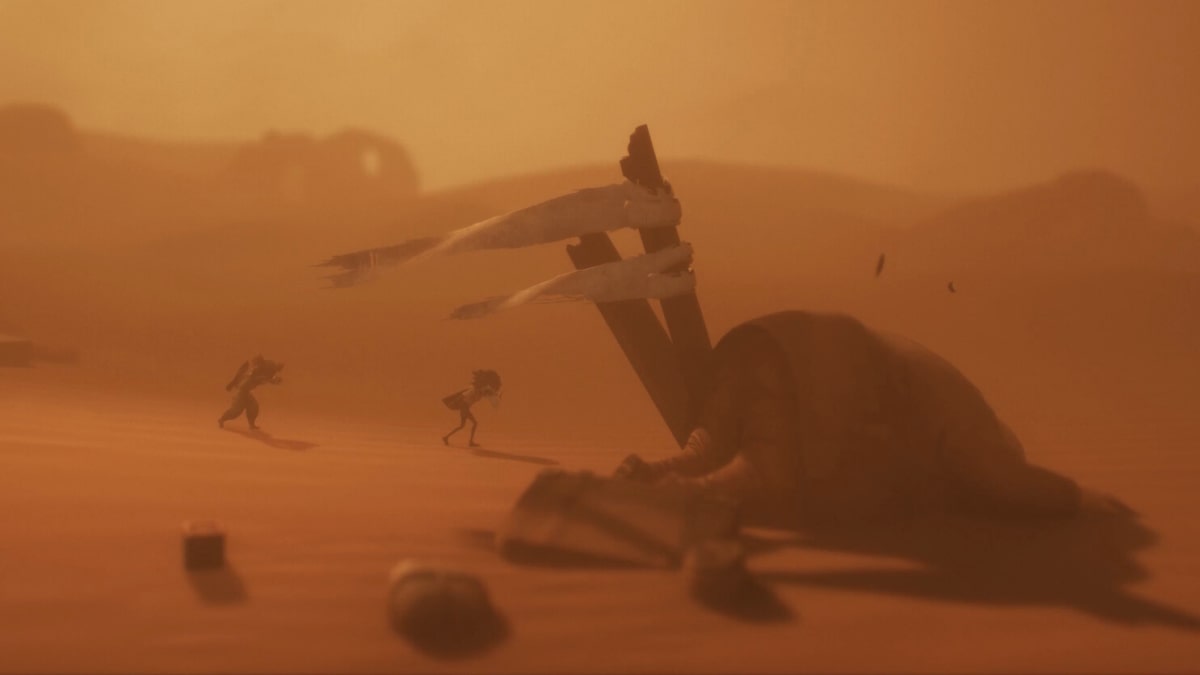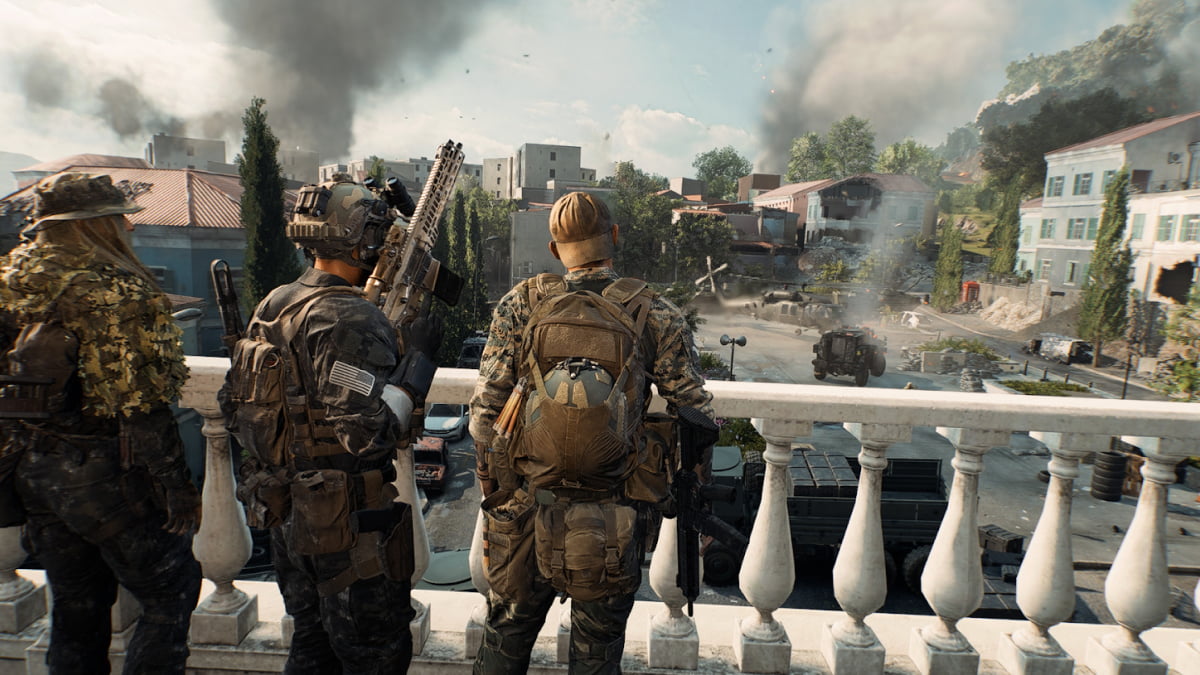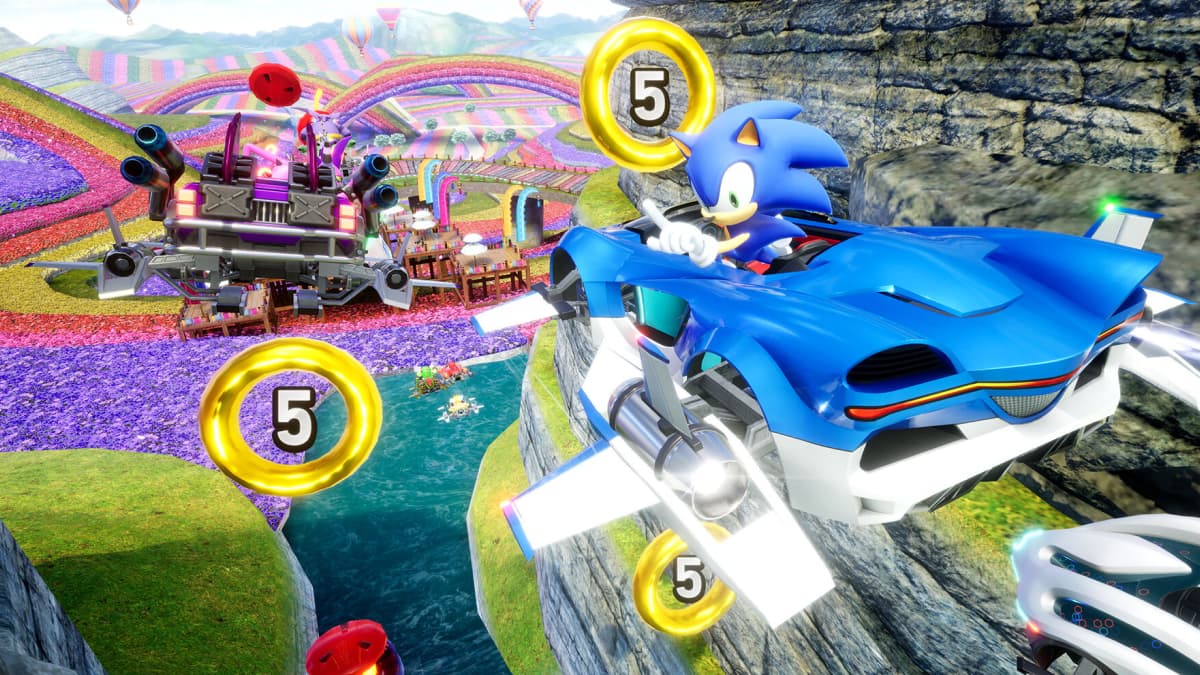You can trust VideoGamer. Our team of gaming experts spend hours testing and reviewing the latest games, to ensure you're reading the most comprehensive guide possible. Rest assured, all imagery and advice is unique and original. Check out how we test and review games here
The heroine of Call of the Sea, Norah Everhart, begins the game in a cabin, with pale daylight flooding through a porthole. It is the nineteen-thirties, and she has hitched a ride on a ship and sailed over the Pacific, to a remote and nameless isle, in search of Harry, her husband—or, as she calls him, her “Old Pal.” Norah’s mood, like her near-constant narration, is infused with that brand of breezy cheer that is often worn like armour. Arriving at her destination, she pulls on a pair of fetching leather gloves, covering the dark blotches running up her hands and wrists. It’s a creepy image, and its mixture of shadows and warmth abounds elsewhere. Only, as we press on in search of Norah’s lost love, we begin to question which is which.
The island is a fine sight from afar (indeed, it caught my eye during an Xbox showcase months ago), but, as Norah wades ashore and finds it sugared with creamy sand, and, soon after, drifts into a jungle as bright as lime jelly, the place starts to bear a trace of the sickly and the surreal. You would forgive her for needing to sit down—or to wake up—at any moment. This being a first-person adventure, the natural sway of Norah’s viewpoint adds to the swelter of the early scenes, and the atmosphere is one of prickling unease. It isn’t long before she locates Harry’s camp, which has rudely repurposed a Polynesian ruin. As we learn, by hoovering up photos, diary scraps, and other clues strewn amidst the clutter, Harry embarked on an expedition looking for a cure for her mysterious ailment. What a sweetheart! The trouble is, when a whispering black ooze bleeds from the walls of a nearby well, Norah is shown visions of her hands, newly webbed and squamous, as she glides beneath the waves, and we wonder if it is an ailment, or something else.
What is going on here? Fans of H.P. Lovecraft will already be sniffing the air. Remote island? Check. Blighted expedition? Check. Alien-looking formations of stone? Check. By the time they find a projector-like contraption, made by a certain Crawford Tillinghast, they will likely be reduced to pleased and jabbering puddles. Tillinghast was the protagonist of Lovecraft’s short story “From Beyond,” who wrangled the power of radio waves to glimpse another realm of existence. “That’s bats!” Norah says, after reading the machine’s manual, and for anyone who would apply that sentiment to Lovecraft’s work, rest assured: Call of the Sea has none of the doom and clamminess that clings to his stories. The Lovecraft plot usually hinges on the terror of the plotless—the fear that manmade narratives, with their neat resolutions and morals, may not govern the stars. This is a lighter affair, far more concerned with Norah and Harry; and love, while hardly a logical compound, makes for a warmer—though not a drier—tale. The director, Tatiana Delgado, has said that the game “isn’t a descent into madness but a rise to sanity.”
Whether you find your sanity descending or rising will depend on your taste for tough puzzles. Delgado, who also co-founded the studio behind the game, Out of the Blue, is clearly enamoured of modern adventure games. The art style favours the combustible colours of Firewatch (Cissy Jones, who voiced Delilah in that game, plays Norah), and the deeds of its characters, like those of Gone Home, are gleaned from sifting the environments for signs of passage. But there is a streak of complexity to some of the puzzles here that hark back to the adventure games of old. There is none of the lateral-thinking cruelty that possessed the heads of those at LucasArts, in the nineties, who enjoyed nothing more than making a simmering broth out of your brain. What you will find is a collection of mechanisms—from the monolithically ancient to the recent and rusted variety—laid out across a range of sprawling environments.
Norah, like Nathan Drake, keeps a journal, filling it with diagrams and hints. Unlike Drake—who seemed to scratch down his exploits for no other reason than to leaf through them later on, like an air-headed holidaymaker—Norah scribbles with purpose. And her notes are a crucial aid. One muralled chamber, in which I had to translate symbols into chunks of sentences, had me frowning into her pages far longer than I stared at the problem above. (Bad news if you’re one of those romantics whose idea of a great game is one that requires real-world scrawling: Norah has beaten you to it, and with better handwriting.) There isn’t any overarching strategy that carries from one conundrum to the next. Each area of the island, from the beach and the echoing inland coves to the rain-wet rock at its peak, is enclosed. Compare the isle of puzzles in The Witness, which was similarly vivid, in its smooth hues and freaky lack of texture, but which tuned your imagination to the all-consuming frequency of its creator, and bid you to follow an unbroken line of thought, as it curled and swerved throughout.
No such obsessions blow through Call of the Sea. Instead, we get a story whose late twists are telegraphed within the first hour or so, and an ending drenched with homage to the Shape of Water. The journey, however, is worth taking. I relished the spectacle of a stranded ship, its hull gashed with Godzilla-sized claw marks. And, in the wavering depths of a dream sequence, Norah swimming down towards a pair of glowing eyes. Still, that sort of thing is par for the course, when you’re in Lovecraftland. What rescues the game from the descent into cliché isn’t a rise to sanity. Nor is it the call of the sea. It’s Harry. You believe in Norah because she believes in him, and even when the plot goes bats you want to see them back together. Who would have thought that the solution to madness might be marriage? Thanks, Old Pal.
Developer: Out of the Blue
Publisher: Raw Fury
Available on: Xbox Series S / X [reviewed on], Xbox One, PC
Release Date: December 8, 2020
To check what a review score means from us, click here.
Call of the Sea
- Platform(s): PC, PlayStation 4, PlayStation 5, Xbox One, Xbox Series S, Xbox Series S/X
- Genre(s): Adventure, Casual, Indie, Puzzle
